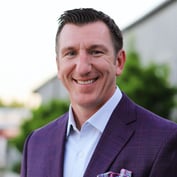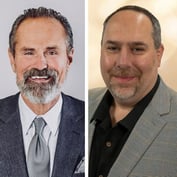It’s no secret the millionaire and billionaire investors on ABC’s “Shark Tank“ are taking giant leaps of faith in investing hundreds of thousands of dollars into new businesses most of us have never heard of until they are introduced on national television. The chance for the Sharks to get in on the ground level for most of these budding businesses creates huge potential for big reward, but not without taking big risks.
Not all business challenges are in securing the next deal with a major retailer, or getting the breakthrough licensing contract that could scale your revenue. Ask Barbara Corcoran, who made a $75,000 deal with the Mastronardo brothers, founders of the skincare line Nardo’s Natural in season three. Corcoran gained half of the company with her investment. Soon after, the four Mastronardo brothers sadly became three when their brother Keith died in an accident in 2013. While the company lives on, the face of ownership has changed.
Solopreneuers, or individual business owners, lead many companies who seek funding through the Sharks. This creates larger risk for the investors, who have to rely much more heavily on a single owner’s performance to recoup or grow their investment. It also means a loss of the owner could be detrimental to the business.
One prepared entrepreneur who pitched her business was Julie Busha of Slawsa, who appeared on season five of “Shark Tank.” She was asked about the risk of being the sole owner in her thriving business during her pitch, which was obviously a concern for Kevin O’Leary.
We found her response to O’Leary a brilliant one, yet the Sharks only laughed it off. We had a chance to catch up with Julie to ask her about her experiences, as well as her thoughts on the risks involved with being a small business owner. Here’s what she had to say.
Q: Did your experience with “Shark Tank” change your mindset as a business owner? If so, how?
Julie: I think, if anything, it gave me more confidence that I’m on the right path. I didn’t receive any criticisms or suggestions in terms of what I can do to improve my business but I think that came because I know my industry and my business inside and out. It’s a good thing when you walk out of a room with confidence knowing you’ve earned accolades of such esteemed business people you truly respect.
Q: If you remember during the pitch, when Kevin O’Leary was the last remaining Shark, he said, “But think about the risk for an investor. That kind of valuation doesn’t reflect the risk in a one-woman business. You could walk out of the “Shark Tank” tonight and get run over by a bus, and that’s the end of this company.” With such a finite statement, you had a quick response. Why did you find life insurance to be an easy reply?
Julie: It was a preposterous statement that had no basis for my kind of business. I’m not an entertainer or an artist, so my creativity isn’t solely relied upon to keep my company going. A very affordable key-man insurance policy, should I meet the front end of a bus, would not only protect his investment but keep the company going by hiring several qualified individuals to fill my shoes. When I worked for a previous company, my long-time client wanted the guarantee that I would always be involved in their business, and thus they made sure they had my name written in as a key-member in their contract with my employer. Even clients want those levels of protection as well. Proctor and Gamble insured Troy Polamalu‘s famous locks since he represents their Head & Shoulders brand. When you can create that kind of value of yourself, you have to look at insurance policies or contractual assurances to protect your biggest assets, whether they are your employees or your investments.








 January 14, 2014 at 04:00 AM
January 14, 2014 at 04:00 AM










